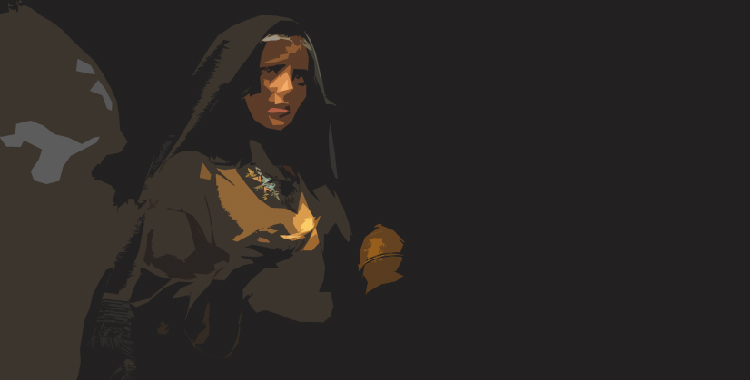15 July 1986
Dear diary,
Delhi
Witch of the night:
I see the old lady with a pale face through the window of my room,
She sits still, frigidly, immobile,
Looking at the flaking mauve wall, as if de-mystifying an age-old mystery,
Sometimes she is a curiosity, other times the witch of the night,
Saans and her friends’ hearsay, ‘Her feet are twisted, her eyes are squinted.’
With lanterns held about, I peep like a child investigating a new toy,
Meddling isn’t my business, but what if the lady voodoos like they say,
Prying, waiting for her to cast a spell,
To witness the magic, they claim, myself,
Alternating my eyeballs between the children who lay in beds, warmly,
And her, who sits pondering,
Then, mocking my own gullibility, I scold myself,
There she is, possibly in agony,
Deserted by the society or crippled in illness,
Haunted by the wounds still sore or the evil of death,
Tormented by customs or drilled to conform,
Husband, sons, fathers, or everyone else around,
Tested for strength or pushed to the edge,
Perhaps, we are same, sisters in pain,
Both yield before them, who fail, abuse and bruise,
For who is different, a woman, is a curiosity,
If you understand, a woman of character,
If the answers lie in perplexity, unacceptable to the society,
Where had I been looking?
Within, I found the witch of the night.
With devotion,
Sukshma
***
About the Sukshma Series:
The Sukshma Series is a first-hand account of an educated woman of post-colonial India reflecting on how the social and political set-up of the country defined the status of an Indian woman.
The title of the poems is “Sukshma”, the title is very deliberate because Sukshma essentially means dormant energy and in the context of the central character’s feelings, it is quite pertinent. Sukshma is an educated middle-class house-wife in the 1980s in India. Sukshma maintains a personal diary in which she scribbles about her emotions, fears and anxieties in her life and expresses them only through the medium of poems. Evidently, her writing is mature and literary, but she is torn between the responsibilities of the household, family, children and the rigid social structures of the society that prohibit her aesthetic ability to write, so she keeps them private and writes very irregularly. Sukshma keeps her writing energy dormant and concealed from the rest of the society because she fears the aftermath of being deviant. Through her writing, she speaks volumes about her predicament as an Indian woman and reflects on the violence and horrors of her critical situation.
Previous poems in the series: Unturned, Kitchenette, Silk Veil, It is a good day, Ma
***
Photo by Gift Habeshaw on Unsplash





